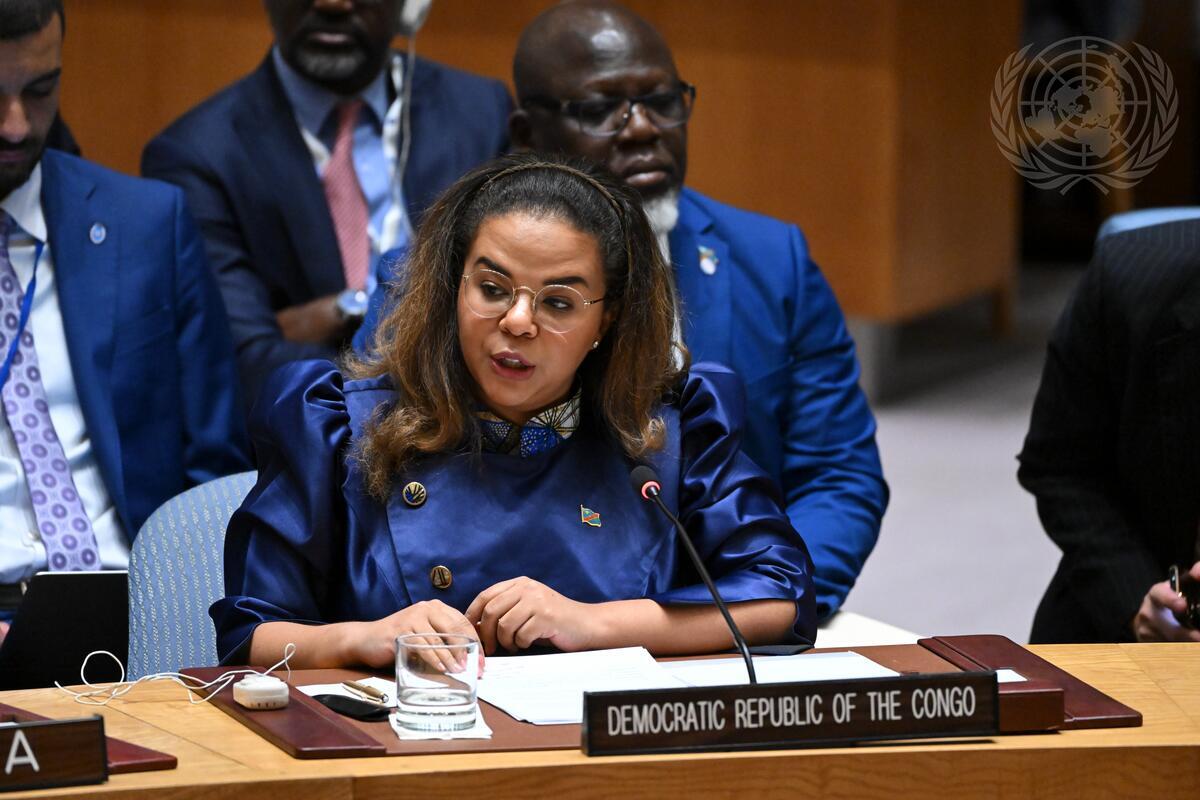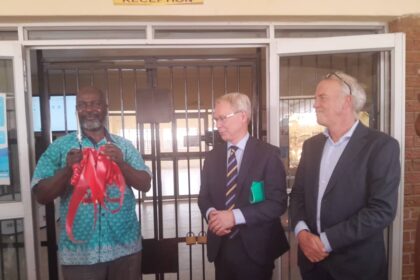By Pearl Matibe in Washington D.C.
Speaking from Washington, D.C., following pivotal meetings at the United Nations Security Council, Democratic Republic of the Congo (DRC) Foreign Minister Thérèse Kayikwamba Wagner shared her perspective on her country’s pressing challenges and global aspirations. The Foreign Minister was in the U.S. as part of ongoing discussions under the December presidency of the Security Council, led by the United States. At the start of the U.S. presidency of the UN Security Council, U.S. Ambassador to the United Nations Linda Thomas-Greenfield underscored the importance of addressing escalating security challenges in Africa, including in the DRC, during a press briefing on 3 December.
At the heart of the Foreign Minister’s message was a firm assertion of the DRC’s sovereignty and her commitment to reshaping the global narrative surrounding her country. Thérèse Kayikwamba Wagner described the eastern DRC’s ongoing conflicts as deeply rooted in foreign interference, notably citing the presence of the Rwandan Defense Forces operating under the guise of the M23 rebellion.
She framed this as an occupation that undermines the DRC’s territorial integrity, a matter she brought forcefully to the Security Council’s attention. “This is not merely a rebellion,” she stated, referencing evidence presented by UN experts. “It is a foreign army exploiting our natural resources and destabilizing our region.”
The Foreign Minister’s visit to the United Nations headquarters in New York was not solely about presenting the challenges. It was also an opportunity to articulate the broader story of the DRC, one she believes is often overshadowed by conflict. Young audiences across Africa and the world can take note of her efforts to highlight the historical contributions of the DRC to global progress.
She spoke passionately about her country’s role in fueling industrial revolutions, from the rubber and copper that powered the machinery of the 19th and 20th centuries to the uranium integral to pivotal moments in world history. The DRC people during the slavery era, helped build America and other countries. She declared, that the DRC has always been at the crossroads of humanity’s major milestones. She expressed that it is now time to shape these milestones as active participants rather than passive observers.
Thérèse Kayikwamba Wagner said that 2025, is poised to be a transformative year for the DRC’s foreign policy. Central to her mission as Foreign Minister is modernizing the Ministry of Foreign Affairs through digitalization, equipping it to respond more effectively to the challenges of the 21st century. She also underscored the importance of increasing Congolese representation in multilateral organizations and amplifying the country’s voice on the global stage. This commitment, in her view, was evident in the DRC’s successful bid for a seat on the UN Human Rights Council and its candidacy for a non-permanent seat on the Security Council.
In addressing security issues, Thérèse Kayikwamba Wagner pointed to collaborative efforts with regional partners, such as joint military operations with Uganda to counter the Allied Democratic Forces (ADF, also known as ISIS-DRC). She also emphasized the importance of reviving peace processes like the Nairobi and Luanda frameworks to tackle both local armed groups and broader regional instability. These efforts, she explained, are crucial for creating pathways out of violence, particularly for the youth coerced into armed groups.
Reflecting on the DRC’s place in Africa, the Foreign Minister celebrated the country’s deep ties with the Southern African Development Community (SADC), describing the regional organization as a bastion of solidarity. “SADC countries have been unwavering allies during some of our darkest moments,” she said, acknowledging the strength of regional unity.
While her remarks were not directed at youth specifically, her narrative offers lessons for young Africans. By portraying the DRC not only as a country of challenges but also as one of profound resilience, cultural richness, and historical significance, she is trying to lay out a model for reclaiming African stories on the global stage. She highlighted the DRC’s cultural legacy, from its status as the largest French-speaking country in the world—ahead of France— to its music that has not only captivated audiences across generations but contributed to many music creators and genres in the worldwide arts industry.
As the DRC prepares to take on more leadership roles in regional and international platforms, Wagner’s vision is clear: a Congo that tells its own story defines its destiny, and contributes meaningfully to the future of Africa and the world. For audiences in southern Africa and beyond, her message underscores the interconnectedness of the region’s struggles and triumphs, urging collective action to build a prosperous, peaceful, and self-reliant continent.
Pearl Matibe is a Washington, DC-based White House Correspondent, and media commentator with expertise in U.S. foreign policy and international security. You may follow her on Twitter: @PearlMatibe



